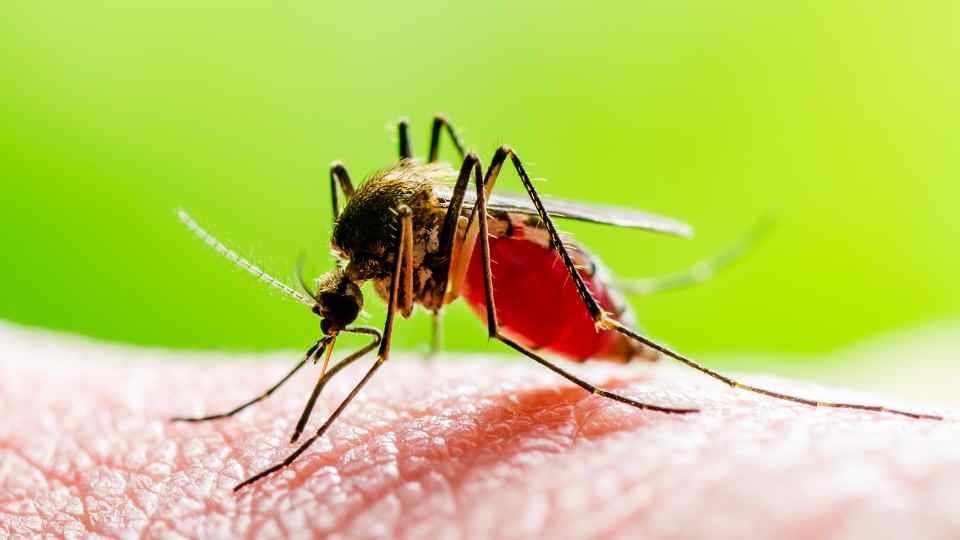
Insect bites are an all-too-common issue, especially during the warmer months when insects are most active. While many bites simply result in minor irritation, others can lead to infections that require prompt attention. At Putney Pharmacy, we recognise the challenges posed by infected insect bites and are dedicated to providing the expertise and resources you need to manage and treat these conditions effectively. Find out more about the causes, symptoms, and treatment options for infected insect bites, with Putney Pharmacy and Pharmacy First.
An infected insect bite occurs when bacteria enter the skin through a bite wound, leading to an infection. Common culprits include mosquitoes, ticks, fleas, and spiders. Typically, insect bites cause localised redness, swelling, and itching. However, if the bite becomes infected, these symptoms can escalate to include increased pain, warmth, and pus.
Insects can transmit bacteria or viruses directly through their bites or indirectly through contaminated surfaces. The risk of infection often increases when the bite site is scratched or not properly cared for. Infected insect bites require a combination of medical and home-based treatments to ensure effective management and recovery.
Identifying an infected insect bite involves observing specific symptoms that distinguish it from a simple bite. Infected bites usually exhibit more severe and systemic symptoms. Initially, the bite area may become increasingly red and swollen, with the skin feeling warm to the touch. As the infection progresses, pain and tenderness may develop, and the bite site might produce pus or other discharge. In more serious cases, systemic symptoms such as fever could occur, signaling that the infection is affecting the broader body.
If an insect bite begins to show signs of spreading beyond the initial area or if you experience additional symptoms such as high fever or swollen lymph nodes, it is important to seek medical attention. These signs can indicate a more severe infection requiring professional intervention.
Putney Pharmacy is committed to providing the best care for managing infected insect bites. Our services include expert advice and access to effective treatments designed to address both the infection and its symptoms.
Topical Treatments are often the first line of defense for managing mild to moderate infections. Our pharmacy stocks a variety of antibiotic ointments that can be applied directly to the bite area. These ointments, such as those containing mupirocin or fusidic acid, are designed to combat bacterial infections and promote healing. Additionally, hydrocortisone cream can be used to reduce inflammation and alleviate itching, providing comfort to those affected by itchy and irritated bites.
Oral Medications might be necessary in combating more severe infections. While our pharmacy can offer recommendations, severe cases may require a prescription for oral antibiotics. These medications work internally to combat infection and can be crucial if topical treatments alone are insufficient. In cases where the infected bite causes significant pain or discomfort, over-the-counter pain relievers like ibuprofen or acetaminophen can be used to manage symptoms.
Home Care Measures play a critical role in the recovery process. Proper cleaning of the bite area is essential to remove any bacteria and reduce the risk of further infection. We recommend washing the affected area with mild soap and water to keep it clean. Applying a cold compress can help alleviate swelling and discomfort. It is also important to avoid scratching the bite, as this can worsen the infection and potentially spread it to other parts of the body.
Preventing insect bites in the first place is the most effective way to avoid infections. At Putney Pharmacy, we offer advice on how to minimise the risk of being bitten. Using insect repellent containing DEET or other effective ingredients can help ward off insects. Wearing protective clothing, such as long sleeves and pants, when in areas with high insect activity can also reduce the likelihood of bites.
Maintaining good personal hygiene and ensuring that any scratches or wounds are promptly treated can further prevent infections. If you are in a high-risk environment, such as a tropical area where insect-borne diseases are more prevalent, taking extra precautions and being aware of local health advisories is crucial.
While many infected insect bites can be managed with over-the-counter treatments and home care, there are circumstances where professional medical advice is necessary. If you experience severe symptoms, such as increasing redness, swelling, or fever, it is important to consult a healthcare provider. Similarly, if the infection appears to be spreading or if you have underlying health conditions that could complicate recovery, seeking medical care is essential.
In rare cases, severe allergic reactions to insect bites can occur. Symptoms such as difficulty breathing, swelling of the face or throat, or hives require immediate emergency medical attention.
Infected insect bites can lead to significant discomfort and potential health concerns if not managed properly. At Putney Pharmacy, we offer a range of services and treatments designed to help you address and manage these infections effectively. By understanding the symptoms, treatment options, and prevention strategies, you can take proactive steps to manage infected insect bites and promote a swift recovery.
For expert advice and support on managing infected insect bites, contact Putney Pharmacy. Our team is here to help you navigate the best course of action for effective treatment and relief, ensuring you receive the care and attention you need to recover and stay healthy.
We are committed to ensuring that you receive the best possible care, whether through our in-pharmacy services or by assisting you in seeking further medical help if necessary.
